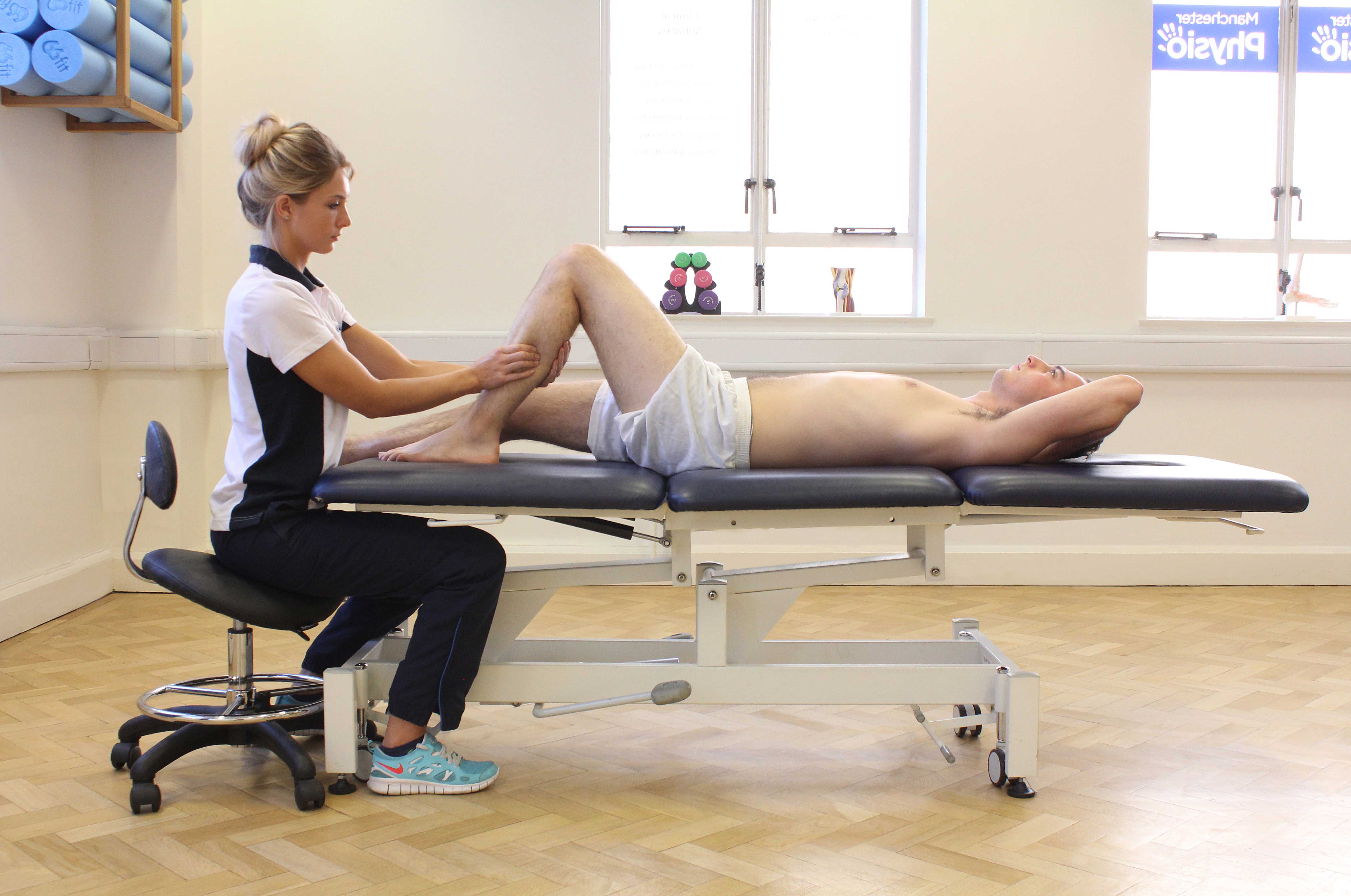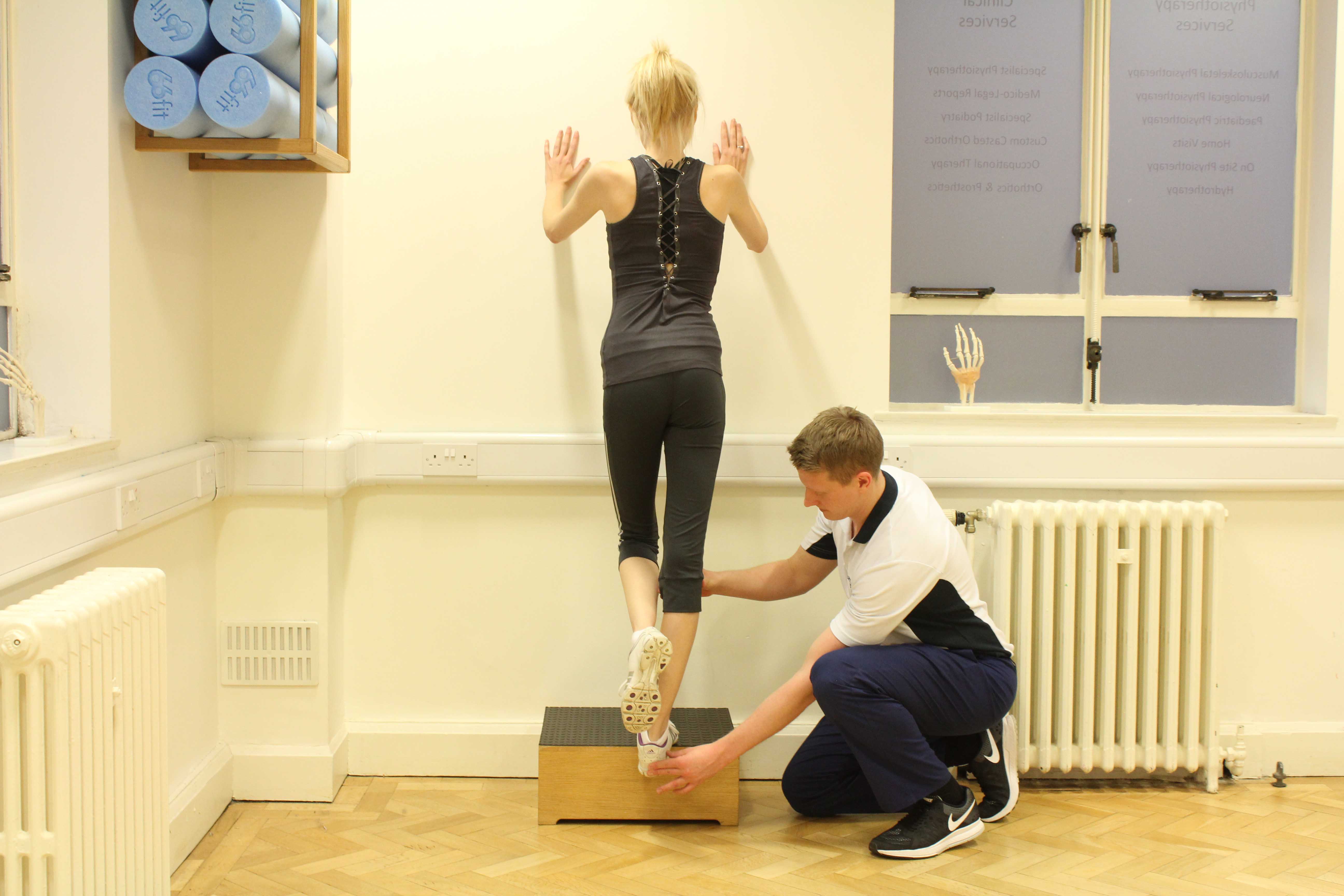What is a stress fracture of the fibula?
The fibula is the smaller of the two lower leg bones that runs alongside the shin bone. A stress fracture of the fibula is an incomplete fracture or crack within this bone. Physiotherapy is an excellent treatment for a stress fracture of the fibula.
 Above: Deep tissue massage apllied to the gastrocnemius muscle by specialist therapist
Above: Deep tissue massage apllied to the gastrocnemius muscle by specialist therapistHow does a stress fracture of the fibula happen?
Stress fractures of the fibula are caused by an imbalance between bone formation and bone resorption (removal). When the fibula is loaded or stressed, such as during weight-bearing exercise, it responds by increasing its bone turnover. This is necessary for it to live up to your demands on it.
When stress is put on the fibula, areas of the bone can become damaged. The damaged areas of bone are then resorped (removed) and replaced with new bone. If new bone formation is slower than resorption (removal) of the old bone, weak points can occur at areas of stress within the fibula. An area of weakness in the bone can develop into a stress fracture if it is continually stressed.
Recent changes in training can often be factors in the development of a stress fracture. This could involve a change in frequency, duration, intensity, training surfaces or footwear.
 Above: Soft tissue massage applied to soleus muscle by specilaist therapist
Above: Soft tissue massage applied to soleus muscle by specilaist therapistWhat are the symptoms of a stress fracture of the fibula?
A stress fracture of the fibula caused a gradually increasing pain on the outside of the lower leg. Pain is often initially only present following activity. However, with continued loading and stress, the pain may progress to being present during exercise. It may eventually reach a point where the fibula is painful during walking, rest and at night. The site of the fracture will also be sore to touch. Additional symptoms may include:
What should I do if I have a stress fracture of the fibula?
If you suspect that you have a stress fracture of your fibula, you should arrange a physiotherapy assessment as soon as possible.
 Above: Calf strengthening exercises conducted under supervision of specialist MSK physiotherapist
Above: Calf strengthening exercises conducted under supervision of specialist MSK physiotherapist What shouldn’t I do if I have a stress fracture of the fibula?
If you suspect that you have a stress fracture of your fibula you should not continue to exercise. If you continue to exercise you could weaken the bone further and delay healing. This can potentially lead to a longer lay off from normal activity and, in some cases, a complete fracture of the fibula.
Could there be any long-term effects from a stress fracture of the fibula?
A stress fracture of the fibula does not produce any long-term effects, if it is properly treated, and the cause identified and addressed. If this does not happen, you may be at risk of a complete bone fracture or further stress fractures when you recommence participation.
Physiotherapy treatment for a stress fracture of the fibula.
Physiotherapy is important in the treatment of a stress fracture of the fibula. Initially, your physiotherapist can provide you with a diagnosis. This may require the referral for imaging techniques such as a MRI scan. From this your physiotherapist can develop an appropriate treatment plan. This may initially involve a period of rest, bracing and the use of crutches and icing to help with your pain. A programme will be developed to allow you to maintain your cardiovascular fitness and muscle strength without delaying healing. This may involve low impact ‘cross training’, swimming, deep water running and cycling. Other treatments include: To arrange an assessment with a specialist physiotherapist call Physio.co.uk on 0330 088 7800 or book online.

 0330 088 7800
0330 088 7800





































